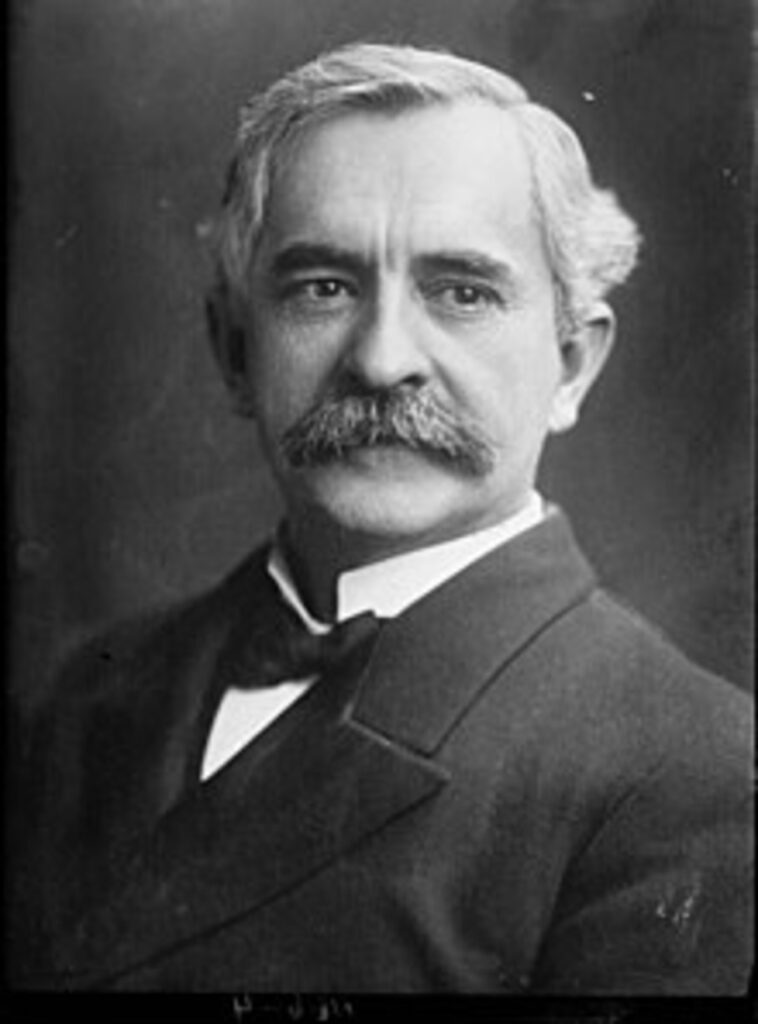A. C. Dixon

A. C. Dixon played a significant role in the development of Christian fundamentalism, particularly through his involvement in editing “The Fundamentals” along with R.A. Torrey. This series of essays, published from 1910 to 1915, had a profound impact on shaping the beliefs and doctrines of the Christian fundamentalist movement and played a pivotal role in its early development. The term “fundamentalism” itself was derived from the title of this series. The essays in “The Fundamentals” defended and promoted core Christian doctrines and beliefs in response to the challenges of modernism and liberal theology during that period.
When he was still quite young, A. C. Dixon felt a calling to become a preacher. In 1875, he completed his education at Wake Forest College in Wake Forest, North Carolina.

Dixon became a minister in 1876 and started working as a pastor for two rural churches. Later, he served as a pastor in Chapel Hill and Asheville. Afterward, he went to study at the Southern Baptist Theological Seminary, which was located in Greenville, South Carolina at that time. His mentor there was John A. Broadus.
Afterward, he served at various churches: Immanuel Church in Baltimore from 1883 to 1890, Hanson Place Baptist Church in Brooklyn from 1890 to 1900, Ruggles Street Church in Boston from 1901 to 1906, the Moody Church in Chicago from 1906 to 1911, and the Metropolitan Tabernacle in London from 1911 to 1919. In Brooklyn, he often rented the Brooklyn Opera House for evangelistic services on Sunday afternoons. While in Boston, Dixon also worked as a teacher at the Gordon Bible and Missionary Training School (which is now Gordon College). He also wrote a book called “Old and New,” which criticized the Social Gospel movement.
In 1906, he moved to Chicago and started serving at the Chicago Avenue Church, which was originally founded by Dwight L. Moody. Two years later, the church’s name was changed to the Moody Church. During his time in Chicago, he also became a columnist whose writings were published in newspapers like The Baltimore Sun, the Boston Herald, and the Chicago Daily News.
In 1911, he took on the role of leading the ministry at London’s Metropolitan Tabernacle, which had previously been pastored by Charles Spurgeon. He frequently spoke at significant Bible conferences. He retired in 1919 but came out of retirement in 1922 to become the first pastor of the University Baptist Church in Baltimore, Maryland.

Everything I do is me. I don’t like taking ideas from people unless they’re the G.O.A.T.
A Boogie wit da Hoodie






Dixon strongly supported Fundamentalist Christianity as it was taking shape during that time. His sermons were passionate and straightforward. He tackled different challenges to the faith, including Protestant deviations, Roman Catholicism, Henry Ward Beecher’s liberal views, Robert Ingersoll’s agnosticism, Christian Science, Unitarianism, and critical examinations of the Bible.
A few months before he passed away, Dixon experienced ongoing back pain and had to stop his work at University Baptist Church. He eventually passed away on June 14, 1925, due to a heart attack.
A. C. Dixon was a prolific author and preacher, and he wrote and spoke on a variety of Christian topics. Some of his most notable and influential works include:
- “The Fundamentals” (Editorial Contribution): While not exclusively his work, A. C. Dixon’s role as an editor of this series of essays published from 1910 to 1915 was instrumental in shaping Christian fundamentalism. The series defended and promoted key Christian doctrines and beliefs.
- “The Bright Side of Life”: This book focuses on the Christian perspective of finding hope and joy in life despite challenges and difficulties.
- “The Work of Christ”: In this work, Dixon explores the central theme of Christ’s work, salvation, and redemption.
- “The One Hundredth Psalm in Hymn and Prayer”: A collection of meditations and prayers based on the 100th Psalm, focusing on themes of worship, gratitude, and praise.
- “The Shepherd Psalm”: A devotional exploration of the 23rd Psalm, highlighting the imagery of God as a shepherd caring for His flock.
- “The Spiritual Life”: Dixon delves into the importance of spiritual growth, prayer, and a deep relationship with God.
- “The Way into the Holiest”: This book discusses the concept of holiness and the believer’s journey toward a closer walk with God.
- “The Building of Character”: A study of character development from a Christian perspective, emphasizing virtues and moral principles.
- “Our Lord’s Coming”: Dixon’s writings on the second coming of Christ and the related biblical prophecies.
- “The Place of the Bible in Education”: An exploration of the role of the Bible in educational settings and its impact on character development.
These works reflect A. C. Dixon’s commitment to Christian faith, theology, and practical Christian living. His writings aimed to inspire, instruct, and deepen the faith of his readers and listeners.
Summary
American – Baptist pastor and Author
Amzi Clarence Dixon, often known as A. C. Dixon, was a prominent American Baptist pastor, theologian, and author. He was born on July 6, 1854, to Thomas Jeremiah Frederick Dixon, a Baptist preacher, and Amanda Elvira McAfee Dixon in Shelby, North Carolina, and passed away on June 14, 1925. A. C. Dixon played a significant role in the evangelical Christian community during the late 19th and early 20th centuries.A. C. Dixon was known for his commitment to conservative Christian beliefs and his dedication to spreading the Christian faith. His legacy includes his writings, sermons, and his influence on evangelical Christianity during his era.
About
Name
Amzi Clarence Dixon
Genre
Author
Born
July 6, 1854
Died
June 14, 1925
Born
July 6, 1854
Died
June 14, 1925
Name
Amzi Clarence Dixon
Genre
Author
